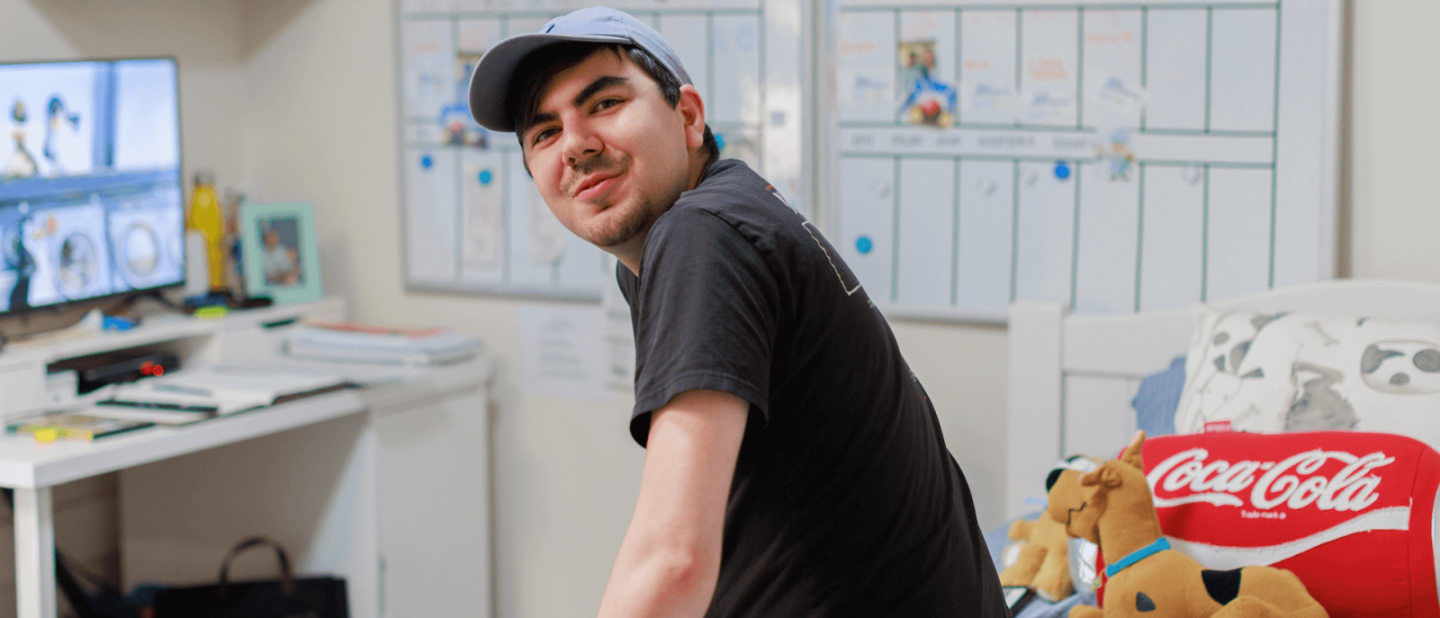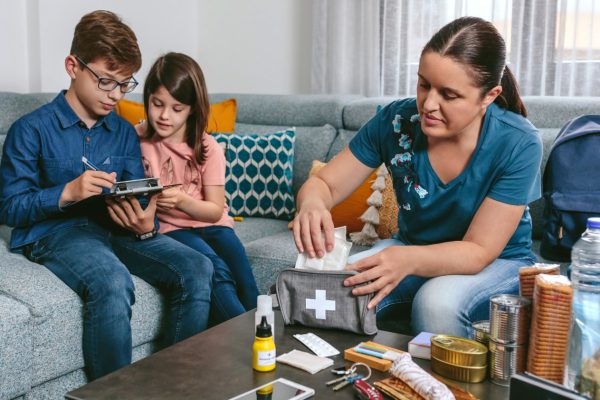
How Luke’s mum let go: The not-so-scary transition to Supported Independent Living
Becoming an empty nester can be daunting for all parents, but even more so for those who care for a child with disabilities.
For Rosie, making the decision to transition her son, Luke, to a Supported Independent Living (SIL) house was one of the “hardest decisions to make” – but it paid off in ways she couldn’t have imagined.
“When Luke was at home, he had a lot of behaviours of concern, he would throw himself on the ground, smash windows, put holes in walls and he barely slept,” Rosie said.
Meeting all of Luke’s needs as a working single mother meant Rosie was left feeling increasingly burnt out and drained. Her relationship with her daughter, Luke’s sister Laura, also became strained as much of the household dynamic was centred around Luke.
As a young man, Rosie also felt that she was limited in what she could offer Luke in terms of social interactions with people his own age.
“He’s such a social person, and I just thought, ‘I can’t give him any more, he needs to be with people his own age group’.”

One step at a time
Despite wanting Luke to flourish in a new environment, Rosie was nervous and apprehensive about making such a big change.
“Society has got this idea about ‘putting him in a home’, or ‘giving him up’, or ‘not knowing what’s around the corner’, and that was really hard to get over,” Rosie said.
“I was scared and I didn’t know what to expect, and it took me three years to decide whether he was ready and if I was brave enough.”
But Rosie’s concerns were put to rest as soon as she visited one of Scope’s SIL homes and learned more about the services offered there.
“When I rocked up to the house, I couldn’t get over how comfortable it was!”
“Seeing the house and the people working there, I could have left him there that day. I thought, ‘This is not sterile, this is beautiful, this is just an average home – it’s a real home’.”
House teams were able to implement strategies, like Luke’s famous whiteboards, to best support him and manage his behaviours of concern.
Even more impressive was the opportunity to watch Luke become more independent and responsible than Rosie ever thought possible.
“Luke found his voice, and because he doesn’t have mum hanging around all the time he is making his own decisions,” she said.
“He always looked towards me to say is it okay but now he’s standing on his own two feet and being more independent with things like filling the dishwasher, putting the bins out, doing the gardening – I see him and he is feeling like a man.
“I had always looked after him so he thought the decision-making would always be through me, but now he can help with the decision-making for the house and he’s realising he can make decisions for himself.”
Luke’s relationships with his mother and sister have become closer and more respectful since his transition so SIL, and he has developed other strong, supportive bonds with his fellow housemates.
When asked for any words of wisdom for families going through similar stages in their care journey, Rosie emphasised the importance of visiting houses to understand the process better.
“Go to a house and see what they do for yourself because we’ve all got these ideas in our heads and they’re old, they’re traditional and they’re rubbish – this is a way for your child to develop.”
“He has a right to be himself, and if we kept him at home we would have been stopping him from seeing the real world.”
“Watching him get his own voice out there has been marvelous.”
Scope is one of the largest disability service providers in Australia, helping each person they support to live as an equal and empowered citizen.






